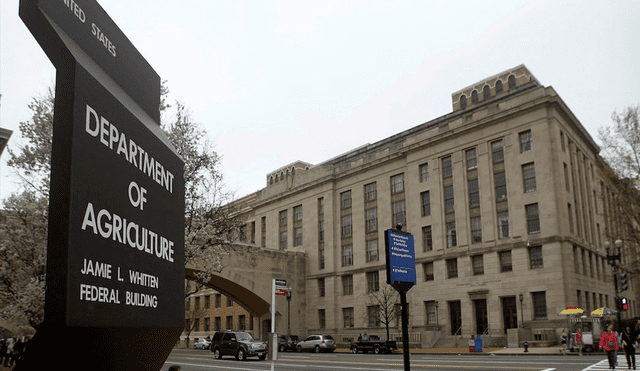Which HBCUs Are Affected by the USDA's Scholarship Suspension, and Why
The USDA has suspended scholarship programs at 19 HBCUs, including NC A&T. Find out which schools are affected, why the program was halted, and what happens next.

The U.S. Department of Agriculture (USDA) has put a sudden halt to its 1890 National Scholars Program, which provided full scholarships to students at 19 historically Black colleges and universities (HBCUs). Among the affected schools is North Carolina A&T State University, one of the largest HBCUs in the country. The program, designed to support students in agriculture-related fields, has been marked as "suspended pending further review" on the USDA’s website—yet officials have not provided a clear explanation for the decision.
The suspension has sparked concerns and backlash, with education leaders and lawmakers questioning how this move will impact Black students pursuing careers in agriculture. The USDA awarded $19.2 million in scholarships through this initiative in 2024 alone, making its sudden pause a major disruption for students relying on this financial aid. As institutions seek clarity, many are asking: Why was the program suspended, and what does this mean for the future of HBCU funding?
What Is the 1890 National Scholars Program?
The 1890 National Scholars Program was established in 1992 to support students at land-grant HBCUs pursuing degrees in agriculture, food sciences, business, and STEM-related fields. The program covered:
- Full tuition and fees
- Books and educational expenses
- Room and board
In 2024 alone, the USDA allocated $19.2 million to fund 94 students through this initiative. Many of these students relied on this funding to complete their education, making the program’s suspension a major setback for aspiring agricultural professionals from underrepresented communities.
Which HBCUs are affected by the suspension?
The suspension affects 19 HBCUs, including:
- Alabama A&M University
- Alcorn State University, Mississippi
- Central State University, Ohio
- Delaware State University
- Florida A&M University
- Fort Valley State University, Georgia
- Kentucky State University
- Langston University, Oklahoma
- Lincoln University, Missouri
- North Carolina A&T State University
- Prairie View A&M University, Texas
- South Carolina State University
- Southern University, Louisiana
- Tennessee State University
- Tuskegee University, Alabama
- University of Arkansas Pine Bluff
- University of Maryland Eastern Shore
- Virginia State University
- West Virginia State University
These 19 HBCUs have played a critical role in agricultural research, education, and outreach, particularly for students from rural and historically underserved communities. Without this scholarship, many students now face financial uncertainty.
Why did the USDA suspend the Scholarship Program?
The USDA has not provided a specific reason for suspending the 1890 National Scholars Program. The lack of transparency has fueled speculation about potential causes, including:
- Budget cuts or funding reallocations
- Administrative restructuring within the USDA
- Policy changes affecting land-grant HBCUs
Critics argue that the suspension could widen racial disparities in agricultural education, reversing decades of progress in diversifying the field.

The U.S. Department of Agriculture has suspended a college scholarship program for students from rural and underserved backgrounds who attend historically Black colleges and universities (HBCUs). Photo: Yahoo
Representative Alma Adams, a strong advocate for HBCU funding, condemned the decision, stating that it was: “a clear attack on an invaluable program that makes higher education accessible for everybody.”
The future of the USDA Scholarship Program
With no clear timeline for the program’s reinstatement, affected students and HBCUs are exploring alternative funding options. Some universities have started looking into:
- Emergency grants for students who relied on USDA scholarships
- Private scholarships from agricultural organizations
- State funding initiatives to fill the gap
However, many argue that these temporary solutions do not replace the long-term benefits of the 1890 National Scholars Program. Without federal support, HBCUs may struggle to attract students interested in agriculture and STEM fields.
The USDA has yet to announce whether it plans to resume or permanently discontinue the scholarship program. Until then, affected students and institutions remain in limbo, awaiting clarity on the future of funding for agricultural education at historically Black colleges and universities.













